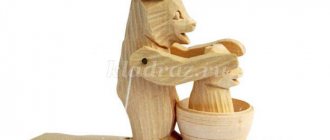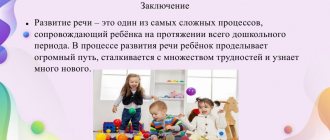Games
Even those activities that are aimed only at speech development in the older group are recommended to be diluted with games that require physical activity. It is desirable that it fits into the general mood of the lesson, matches the theme and uses game attributes. If the lesson is dedicated to the autumn season, you can ask preschoolers the following tasks:
- jump over puddles (cardboard ovals, for example);
- throw paper leaves;
- run away from the rain, played by one of the students;
- show the birds that fly away to warmer climes.
It’s great if children themselves come up with ideas for entertainment, offering options for those entertainments and activities that are associated with the chosen time of year.
Tasks
This stage is dedicated to literary works and creativity. The teacher can read a fairy tale, story or poem dedicated to the topic chosen for the lesson. After reading, it is necessary to engage the fantasy and imagination of preschoolers. Children can figure out how the story ends by offering their own options. You can arrange a quiz, the answers to which were found in the work.
It is preferable to use additional attributes that are prepared in advance. With their help, students will be able to act out the story they read. For example, the teacher told the children a fairy tale about a hedgehog who was stocking up on food for the winter. The teacher offers the children a large basket containing various items. What will the forest animal take: apples, mushrooms, or perhaps a ball?
Development of facial expressions and intonation
The main exercises depend on the chosen topic of the lesson. The process should include tasks to develop expressiveness and facial expressions. Below is an example of a basic step.
Speech development in the senior group on the topic: “Hello Autumn!”
- The teacher invites the preschool children to greet autumn: “We’ve been waiting for you, autumn.”
- Children repeat the sentences, placing emphasis on the first word.
- The greeting is then repeated, but the emphasis is on the second word.
- The phrase is voiced with emphasis on the next word and so on.
The teacher comes up with a new sentence: “Autumn has replaced summer.” Children must repeat the statement in different intonations - cheerful, disappointed, offended, angry. Pupils should be praised and encouraged during the game.
Introduction to the learning process
To organize children and attract their attention, you need to organize an interesting but simple combination of phrases and exercises. You can gather preschoolers in a circle and organize a finger game.
- On the count of one to five, children alternately bend their fingers (“let's play together”).
- When counting backwards, the fist unclenches - three, two, times (“new knowledge awaits us”).
After the game, children are introduced to the upcoming topic of classes, be it learning professions, getting to know nature or a fairy-tale world. It is recommended to have a short conversation related to the topic. It is necessary to involve all children in the conversation using auxiliary questions and individual invitations to timid participants to dialogue.
End of classes
At the end of the lesson, the results are summed up, where preschoolers are given the opportunity to analyze the information received. The teacher asks the children about what the lesson was devoted to, what new and interesting things the children learned. It is important to praise preschoolers; this will encourage them and encourage them to actively participate during lessons in the future.
A small reminder of a past lesson in the form of a gift will especially delight children. This could be a sticker, a delicious candy, or another nice bonus. You can give the children an interesting homework - draw a picture dedicated to the topic covered or learn a poem.




